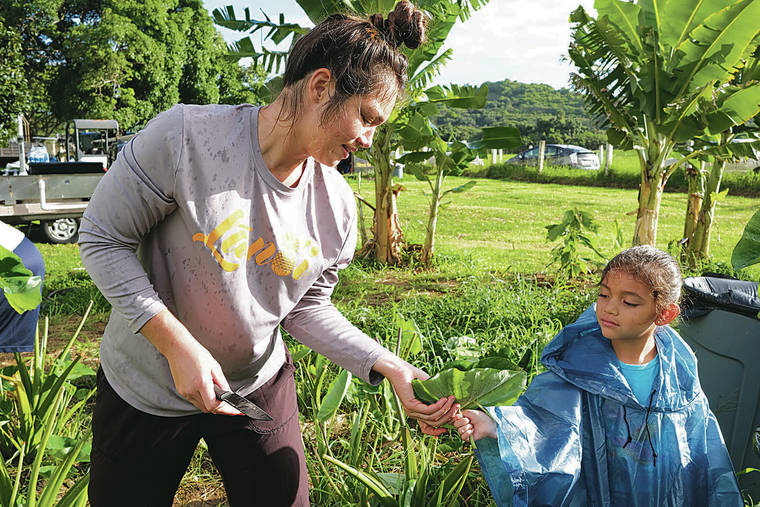Kupa ‘Aina farm, which grows kalo and provides experiential learning on five acres of reclaimed pasture neighboring the Hawaii Youth Correctional Facility in Kailua, has received $15,000 from the Omidyar ‘Ohana.
“We’re so grateful to Pam and Pierre Omidyar, and the Omidyar ‘Ohana Fund at the Hawai‘i Community Foundation, for their support of Kupa ‘Aina Natural Farming Program, an initiative to stimulate more indigenous, sustainable farming,” said Shawn Kanaiaupuni, president and CEO of the Partners in Development Foundation, a Hawaii social service organization founded in 1997.
The funding, she said, provides the farm with a window of opportunity in the midst of the novel coronavirus health and economic crises.
“As a nonprofit, the pandemic is a challenging time to survive, but now we have a more visible light on how very important our food system and food sovereignty is here in Hawaii,” Kanaiaupuni said.
“It’s super exciting,” she added, “that the Omidyars and HCF want to invest in a local farm using local methods and cultural practices to support food production here in Oahu.”
Kanaiaupuni said the farm’s name means “kupa, indigenous to a place, and ‘aina, to furnish food when you’re born to a place.”
Ten years in planning, the enterprise broke ground in 2018 with initial funding from Kamehameha Schools.
“When we first came to the land, it was rock hard,” Kanaiaupuni said. “Now, the soil is very rich; it crumbles in your fingers.”
Kupa ‘Aina grows dryland kalo “using a mix of Hawaiian, Korean, Chinese cultural practices,” free of synthetic pesticides and fertilizers.
The farm’s specialty crop is the lau, the kalo leaf. “We started out giving it away to people in the community, and now we’re at the point of production where can actually sell some of it,” Kanaiaupuni said. “We’re developing relationships with Highway Inn and other local businesses.”
She added that Kupa ‘Aina is also building a seed bank for local farmers and providing cultural, “aina-based experiential learning” for at-risk youth, as well as for residents of HYCF and Kawailoa Youth and Family Wellness Center. Next steps include incorporating a hands-on, STEM curriculum for students in local schools and, in collaboration with Pua Foundation, helping residents of the Women’s Community Correctional Center plan their own natural farm.
Kupa ‘Aina aims to be both “a research farm, where we’re learning and teaching how to grow food in very sustainable, island friendly way, and a place of restoration,” Kanaiaupuni said.
For more information, visit pidf.org Opens in a new tab.

